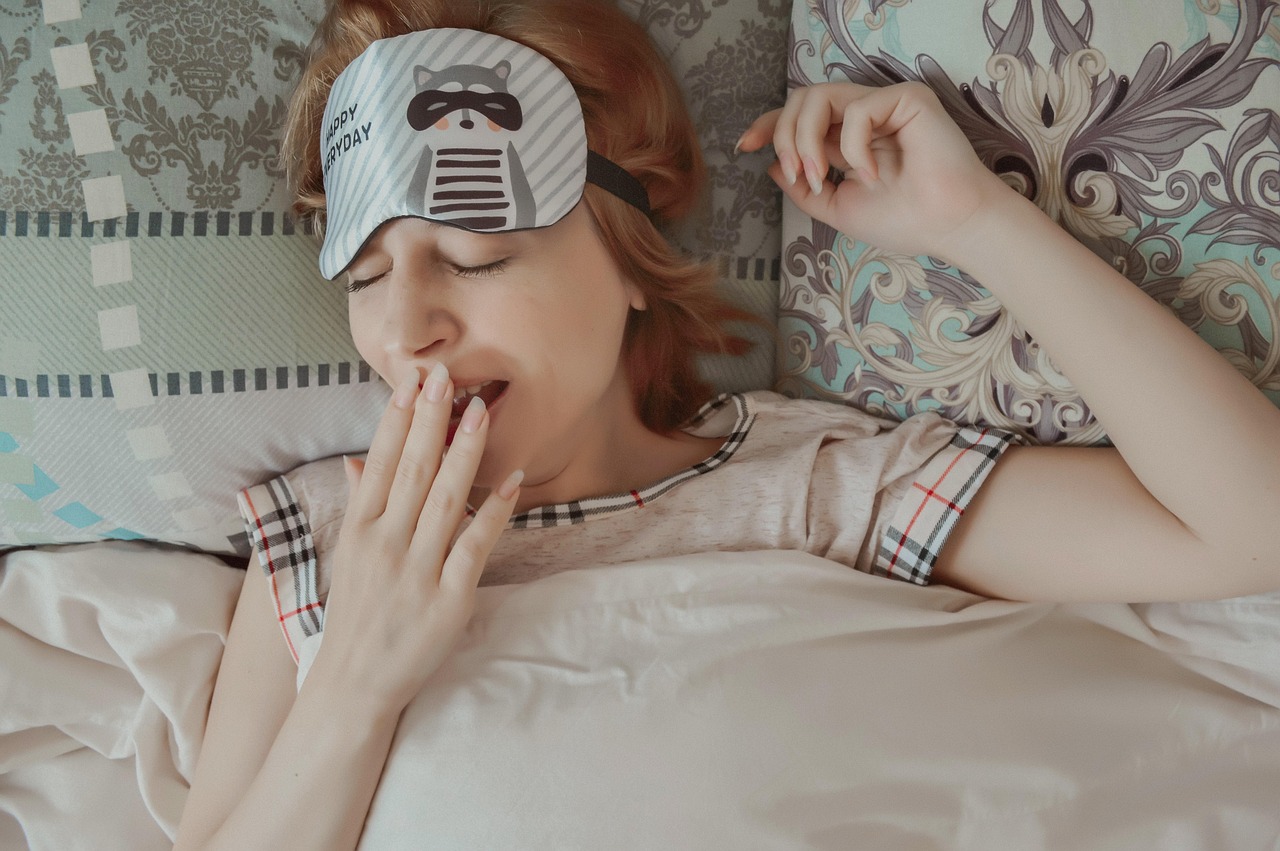The Country That Never Sleeps (Even When It Wants To)
It’s 2:43 a.m. You’ve checked your phone for the fifth time. Maybe you’re replaying a conversation from earlier. Maybe you’re worrying about the bills, your inbox, the future, the news. Whatever it is, it’s doing a good job of keeping you up. If this sounds familiar, you're not alone.
America is experiencing a sleep crisis—not just from noisy neighbors or too much caffeine, but from a deeper kind of unrest. According to the CDC, more than 1 in 3 adults in the U.S. don’t get enough sleep on a regular basis. And it’s not just quantity—it's quality that’s gone out the window too.
So what’s really keeping Americans up at night? And more importantly, what can be done about it?

1. The Stress Load Is Too Heavy
Let’s start with the obvious: stress. Between economic uncertainty, climate anxiety, polarized politics, AI job fears, and just trying to stay afloat in a 24/7 culture, our nervous systems are constantly revving. Cortisol—the body’s stress hormone—is on overdrive, and unfortunately, it’s not great at clocking out when we try to.
“I go to bed tired, but my brain starts running like it's on a treadmill,” said one Redditor in a thread titled Why Can’t I Sleep Anymore? The post had over 7,000 comments.
Solution:
Try adding a wind-down buffer—30–60 minutes of non-digital, low-stimulation time before bed. Reading fiction, taking a warm shower, or even journaling can help signal to your body that it’s safe to shut down.
8 Natural Remedies and Supplements for Your Best Sleep Ever
2. Technology Is Ruining Our Circadian Rhythms
Phones, tablets, TVs—they’re all blasting blue light that disrupts melatonin production (that’s your natural sleep hormone). But it’s not just the light—it’s the content. Doomscrolling at midnight? Watching heated debates? Responding to emails at 11 p.m.? You’re training your brain to stay alert when it should be powering down.
Solution:
Use blue light filters on your devices after 8 p.m. or, better yet, put your phone in another room. Consider getting a cheap analog alarm clock so your phone doesn’t live on your nightstand.
3. We're Chronically Overstimulated
Modern life comes with constant pings, notifications, news updates, ads, texts, and to-do lists. Our brains are overstimulated but undernourished. The result? A nervous system that can’t settle, even when our bodies are still.
Solution:
Micro-dose quiet. Practice doing “nothing” for 5 minutes a day. No music. No scrolling. Just silence. Over time, your mind will learn that stillness isn’t dangerous—it’s restorative.
ASMR - The Ultimate Relaxation and Stress Relieving Trend
4. Economic Anxiety Is at an All-Time High
Inflation. Rent hikes. Medical debt. Stagnant wages. For millions of Americans, the financial pressure is suffocating. It’s hard to sleep when you’re unsure how you’ll pay your rent or buy groceries next week.
According to the American Psychological Association, 72% of adults report money as a significant source of stress—up from 62% a few years ago.
Solution:
While personal finance tips won’t fix systemic problems, building a basic emergency fund—even a few hundred dollars—can reduce anxiety.
Free apps like Mint or YNAB help you track where money goes so you can take back a little control. If stress feels overwhelming, speak to a financial counselor or therapist—many nonprofits offer low-cost services.
Master Your Money: 8 Powerful Steps Beginners Can Take Control of Their Finances
5. Loneliness and Isolation Are Exhausting
You’d think being alone would make it easier to sleep. But isolation often comes with heightened anxiety, depression, and a lack of emotional regulation. Without a support system, small problems feel massive—and our minds magnify them at night.
Solution:
Schedule regular social interaction, even if it’s virtual. Join an interest-based group, volunteer, or check in with a friend. A sense of belonging reduces nighttime rumination and emotional overload.
Grok Valentine and Ani: Japan’s #1 AI Companions and the Future of Love, Loneliness, and Digital Devotion
6. We're Over-Caffeinated and Under-Moved
Coffee is a cultural staple in the U.S.—and many of us are drinking it well into the afternoon. Pair that with sedentary jobs, and the body doesn’t get the physical fatigue it needs to transition into rest.
Solution:
Cut caffeine after 2 p.m. and try moving your body daily—even a brisk walk after dinner helps regulate your sleep-wake cycle. You don’t need a fancy gym membership—just consistency.
7. Insomnia Is Treated Like a Quirk, Not a Health Issue
Too often, people laugh off their insomnia or wear it like a badge of honor. But chronic sleep deprivation is linked to increased risk of heart disease, diabetes, cognitive decline, depression, and even certain cancers.
Solution:
If you’ve tried lifestyle changes and nothing is helping, talk to your doctor. Cognitive Behavioral Therapy for Insomnia (CBT-I) is more effective than sleeping pills for long-term sleep improvement—and is available online or through sleep specialists.
Final Thoughts: Sleep Is Not a Luxury—It’s a Right
In a society that values productivity over rest, it's no wonder sleep has become a casualty. But sleep is not a waste of time. It’s the foundation of memory, immunity, mood, and health.
Maybe it’s time we stopped glorifying hustle and started honoring rest.
Sleep won’t fix all of our problems—but it gives us the strength to face them with clearer minds and steadier hearts.
Follow me for more insights, trends, tips and ways to thrive and survive in 2025!
Next read>>>12 Natural Alternatives to Alcohol for Social Anxiety—Relax Without the Hangover






